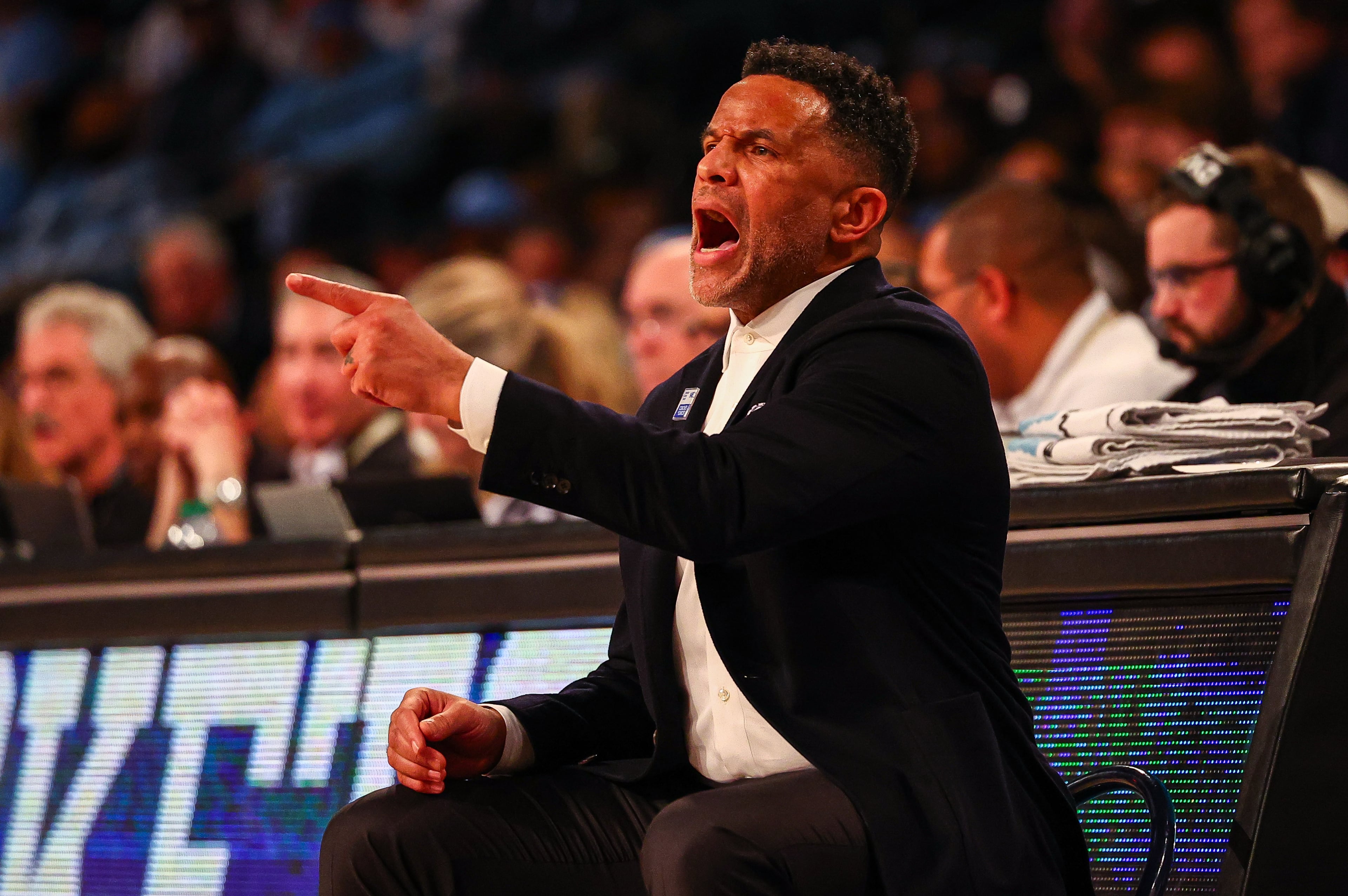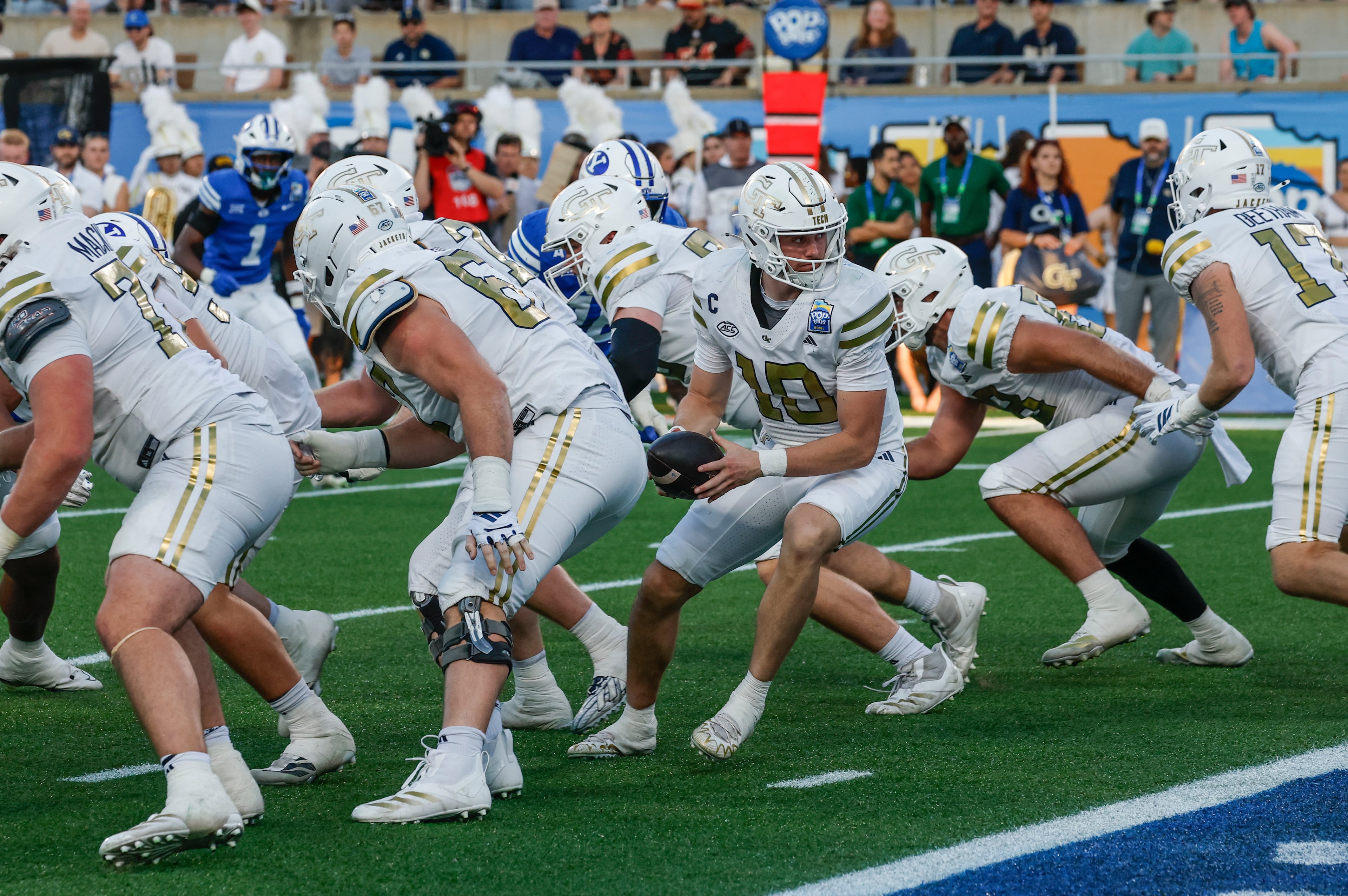‘Ton of excitement’ on draft night for Tech’s Michael Guldberg, Baron Radcliff

Thursday night, Baron Radcliff grew increasingly anxious as the Major League Baseball draft sped to its conclusion. The Georgia Tech outfielder’s draft advisor had told him that there were about eight teams interested in him in the third round, then told him that there were 20 teams that might take him in the fourth round.
Both rounds concluded with all 30 teams taking a pass on the powerful lefty from Norcross High.
“Once it got to the fifth round, we were looking at each other like, what’s going on?” Radcliff said.
His angst ended there, as the Philadelphia Phillies scooped him up with their fifth-round pick in the final round of the draft, shortened from the usual 40 rounds as a cost-cutting measure due to the coronavirus pandemic. He became the second of two Yellow Jackets selected, following outfielder Michael Guldberg going to the Oakland A’s in the third round.
Radcliff’s selection proved worth the wait. After he was picked, he got a call from a Las Vegas phone number that he didn’t recognize, so he didn’t answer it. But when he saw that Phillies’ six-time All-Star (and Las Vegas resident) Bryce Harper had tweeted at him, he realized whose call he had turned down and quickly called back.
“So he Facetimed me last night. When I saw his face, I almost dropped my phone on the floor,” Radcliff said on a video conference with media on Friday. “It was unbelievable for a guy like that, that caliber (to reach out). He doesn’t have to interact with me. I’m just about to be a rookie coming in, but that shows a lot of leadership that a lot of Phillies fans acknowledged. I’m forever grateful for that opportunity. Bryce Harper’s one of my favorite players.”
Radcliff and Guldberg both had plenty to remember, becoming two of the draft’s 160 selections. It’s the 20th consecutive year that Tech has had multiple players drafted.
“Just a ton of excitement,” Guldberg said. “It was a rollercoaster of an evening.”
Both players felt confident that they would be selected, but the draft played out unpredictably. Teams were on the hunt for players that they could sign for bonuses below the slotted value, both players said.
"It was just a lot of different teams coming with different deals the whole time," Guldberg said, "and it was just back and forth on when or if it was going to happen."
Ultimately, the A’s and Phillies couldn’t pass up players with plenty to like. Guldberg hit .374 in three seasons at Tech, the eighth-highest career average all-time at Tech. In Tech’s 16 games this season before it was canceled, Guldberg was hitting an ACC-leading .450 and had struck out just three times in 60 at-bats. Being selected 98th overall is a long way from not getting drafted coming out of Walton High in 2017 and being rated the No. 62 high-school prospect in the state of Georgia.
“He’s been one of the best hitters in the ACC, two years in a row,” Tech coach Danny Hall said. “He’s a model student-athlete, he’s a model teammate, he’s a leader, he’s an extremely hard worker, he’s a really, really good baseball player.”
Guldberg, who holds a 3.90 GPA in industrial engineering, was also named a first-team academic All-American for the second year in a row on Thursday. Guldberg became only the second Tech player ever to earn that distinction more than once.
“It really has been like a dream,” Guldberg. “The academic All-American, it means the world to me. I came to Tech just because I love the baseball program and I wanted to be an engineer. Everybody at Tech has given me every opportunity to be both and to be as good as I can possibly be at both.”
Radcliff possessed one of the most powerful bats in the draft, evidenced by his 12 home runs last season, one of which traveled 471 feet.
“In my opinion, the Philadelphia Phillies got a steal in the fifth round on him,” Hall said. “Because I think he’s a hard worker, he’s a great kid, very athletic family. He has gotten better every year. I think it hurt him that he didn’t have a full season because I’m convinced he would have been in the mid-teens in home runs with a bunch of RBIs and would have been able to just showcase his talent better.”
Radcliff said he believes that “things happen for a reason. So I slid all the way down to the Phillies. I’m going to make the best out of it, for sure.”
Hall was surprised that shortstop and team captain Luke Waddell was not selected, as Hall had received indications from multiple teams that he would be taken in the third or fourth round.
“I hurt for him, but I also know that there’s work to be done,” Hall said. “I know what kind of kid he is. This is just going to fuel the fire on him that this time next year he’ll be in a totally different situation.”
Hall said that he expected senior pitcher Jonathan Hughes, who was not selected, to sign an undrafted free-agent contract. (Because the NCAA granted all spring-sports athletes an extra year of eligibility, Hughes is eligible to return for another senior season.) Hall also said that junior pitcher Brant Hurter is back “for sure” and that junior pitcher Andy Archer will have some opportunities to sign (teams can offer a maximum of $20,000 to undrafted prospects), but expects him to return, also.
Hall also received a bonus of his own in that signee Kevin Parada, a catcher from Los Angeles who was rated a top-50 draft prospect, did not get drafted. Hall surmised that Parada told teams beforehand the signing-bonus amount that it would take for him to be dissuaded from attending Tech, and teams weren’t willing to meet his asking price.
Parada will seek to join a line of Tech catching greats that includes Jason Varitek, Matt Wieters and Joey Bart.
“He’s betting on himself,” Hall said. “Very education-oriented family. He knows the value in coming to Tech and getting a degree and playing baseball here, and I think that at this time he valued that, and he valued the development that we’ve been able to really do with catchers.”



